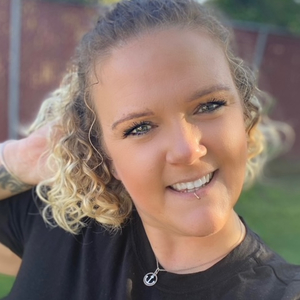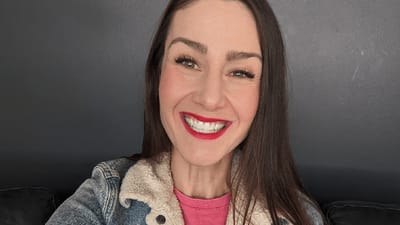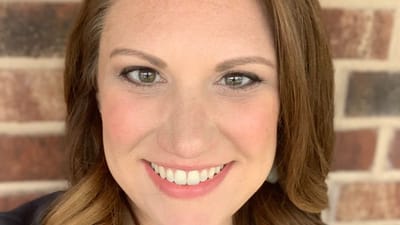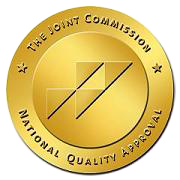Anorexia in Diverse Bodies: Nothing Atypical About It
Mental Note is available on Apple Podcasts, Spotify, Stitcher, or wherever you get your podcasts. Search for Mental Note, and subscribe so you never miss an episode!
American culture praises weight loss. A quick scroll of social media, magazine racks, or even the news will yield numerous “transformation” stories documenting how a fat person turned their life around by shedding pounds. But at what cost?Today, we’re exploring an eating disorder so camouflaged, you probably didn’t even know it exists - Atypical Anorexia. Or, more accurately, anorexia in people with larger bodies.
With our guide - recovery advocate Joanna Nolen - we will unpack how fatphobia impacts the medical system, insurance, and even treatment centers. Plus, Joanna will share her most practical wisdom about navigating this weight-loss-obsessed world as a person in recovery living in a larger body.
Transcript
Ellie Pike:
Hi everyone, I wanted to talk with you about some recent headlines before getting into today's episode.
As some of you may know, The American Academy of Pediatrics just released a controversial new set of guidelines for the Evaluation and Treatment of Children and Adolescent Obesity.
Their recommendations for treatment include bariatric surgery for children as young as 13 and weight loss medication for children as young as 12. What’s more, these guidelines are seriously lacking when it comes to screening for eating disorders.
So, Mental Note Podcast would like to emphasize that, as currently written, these guidelines put young people at risk. They do that by perpetuating harmful weight stigmas that move us further away from achieving universal weight-inclusive care. Consequentially, children will be more likely to develop or worsen eating disorders, disordered eating, and numerous other mental & physical health issues.
Thankfully, not all medical providers align with this narrow conception of body size. Today’s story with Joanna Nolen will not only emphasize the devastating effects of weight stigma on young brains and young bodies, but it will also highlight ways you can advocate for better medical care. Each day, we can make the choice to place our health as the top priority rather than societal expectations.
Ok, on with the show.
Joanna Nolen:
In our society, we tell the stories of the people that are fitting the "mold" of what we expect it to be.
Ellie Pike:
Joanna Nolen, a recovery advocate who grew up in the '90s, knows just how difficult it can be to have a story that doesn't fit expectations.
Joanna Nolen:
It was never a red flag to my family. It never caused any concern to my doctor. I was in no means underweight. I was being praised for taking control of my body and everybody who saw me, they saw not the behaviors that were going on behind the scenes or what was going into me losing that weight, but recognizing me for the weight that I was losing because that's what everybody was telling me that I needed to do.
Ellie Pike:
A quick scroll of social media, magazine racks, or even the news, will yield numerous transformation stories documenting how a fat person turned their life around by shedding pounds. But as Joanna's story will show, all this praise and focus on weight loss comes at great medical, mental, and emotional costs. So today we're exploring an eating disorder diagnosis so camouflaged that you probably didn't even know it existed, atypical anorexia, or more accurately anorexia in people in larger bodies. We'll look at how fat phobia impacts the medical system insurance and even treatment centers. Plus, Joanna will share her most practical wisdom on navigating a weight loss obsessed world as a person in recovery and living in a larger body. You're listening to Mental Note Podcast. I'm Ellie Pike.
A quick note before we begin. Joanna discusses diabetes and other health issues that some people associate with being fat. Her reference to diabetes is not intended to be stigmatizing. The truth is that people in larger bodies shouldn't have to earn being treated with kindness and respect. "Perfect health" is not a moral requirement for having access to healthcare as we hope her story illustrates. Joanna's awareness of weight and its negative connotations began at a young age.
Joanna Nolen:
So my story started back when I was a little kiddo, and this goes back to as young as me being in kindergarten, so five years old. I have diabetes in my family, and that was always a big concern with my pediatrician, was that if I didn't get my weight under control as a kiddo, that, that was something that I was going to develop as a young adult, as an adult. So there was always a lot of discussion at a very young age around weight, and that actually led to a prescribed weight loss medication. So imagine a kid who their entire daily routine revolves around the talk of food, not only at home, but also at school. I was constantly made fun of for not looking like all the other kids, all the other girls. I was not thin. I was heavier set. Then, at home, there was a lot of focus around what it was that I was eating and how I was going to control that and what I couldn't eat, what I could eat, if I was going to get enough exercise. I was an active kid.
Ellie Pike:
This relentless emphasis on Joanna's size didn't let up as she progressed from elementary to junior high to high school, eventually wearing her down and erasing her joy for life.
Joanna Nolen:
I'm tired of being that kid. I'm tired of not being invited, not getting asked to the school dance based off of what I looked like, or not having specific friend groups because of what I looked like. And it wasn't until I graduated from high school that I started to take matters into my own hands.
Ellie Pike:
And so all the pain Joanna had experienced began transforming into disordered behaviors.
Joanna Nolen:
I started exercising a lot. I started to see results and that became, if I do this or this and this, then I will see it come off even faster. Then I started to get recognition from my family members. The peers that I had, had and went through school with also then started commenting on how I looked and for being a kid who all I wanted was to fit in and to be accepted by my peer group and by society and now I'm finally getting that recognition for all of these things that I'm secretly doing behind closed doors, I knew that the more that I did, the more weight I would lose. And it then started to morph into heavy restricting. I wanted to reach that next size, that next weight, and I would put in extra hours at the gym or would restrict more and it left me feeling so empty and it was just never enough for me. It was never enough.
Ellie Pike:
I just want to pause and empathize with you because as a child you think that every grownup and every doctor knows what they're talking about and they're doing the right thing. And I am so sorry that it was your experience that so many people around you had such a fear of fatness that you were put on diet pills at age five. That's terrifying. So thank you, first of all, for sharing that piece of your story, and then, second of all, I will let you jump back in to where you were leaving off of really getting praised because that's what people were noticing, right?
Joanna Nolen:
Yeah. Everybody around me sees this happy go-lucky person because that's what I showed everybody and was then also still getting praised for, "You're beautiful. You look so happy. You've got your 'life together'," because I'm doing all of these things and I appear to be all of these things to all of these people that are around me, yet they don't understand what things are going into me looking this way. This then brings us to the first time that the word eating disorder was ever mentioned. I was sitting in a class. All of a sudden, I just did not feel good and I was just in excruciating pain. And I called my mom and she was concerned and she was at work and she said, "Go to the hospital. I'll meet you there."
I'll never forget sitting in one of the bays in the hospital and the doctor came in and he had asked my parents to leave and was asking me questions. And he was like, "Tell me what you typically eat in a day. What have you eaten today?" And I told him. It was very little at the time, and he was like, "Are you active? Are you an active person?" And I was like, "Well, yeah. I'm definitely active." And I went through my entire regimen with him and he mentioned, "Have you ever been treated for an eating disorder?" And I was like, "No. I don't have an eating disorder. I have 'control' over my life. I'm doing all of these things and everybody's always been worried about my weight, so these are what I'm doing. No. I don't have any disorder."
Ellie Pike:
Despite Joanna's denials, her doctor's concern planted an idea in her imagination that maybe her problem wasn't with weight. Maybe it was with her relationship to food and exercise. It took some time, but that idea finally took root.
Joanna Nolen:
I was so unhappy and I just remember sitting at home and was like, "There has got to be more to life than this, than revolving my entire day around eating and what I was going to eat for the day and what I was going to give myself permission to have. And if I didn't do A, B and C that I wasn't good enough to be loved or have relationships or to be happy." And I knew that there was more to life than that. I made an appointment with my doctor and I remember sitting in his office and he was like, "Okay, why are you here today?" And I just broke down and I was like, "This is what I'm doing. This is what I've done for this amount of time."
And he looked at me and he said, "This has been going on for quite a while and we've got to get through some of these layers. You're going to require something that I can't provide for you." So I was referred to ERC and I had my assessment, and I did the IOP program for three months and then transitioned into outpatient, and that was about six years ago.
Ellie Pike:
Joanna, thank you so much for sharing that journey. And it's interesting as you talk about finding out that you had an eating disorder, you had to become ready to ask for help, and then luckily you did have someone refer you to a specialist and you were able to find Eating Recovery Center. Did you ever have moments though where you did feel invalidated by the medical system? Was that ever your experience?
Joanna Nolen:
I mean, there were many times that I definitely felt invalidated even when I first started treatment. When you have somebody who has developed layers and layers and layers of behaviors of dialogue from not only society but internally since the age of five, and now I am 30 something when I went into treatment, that's a long time to a lot of things to break through and I really think that I would've benefited more from a more intensive treatment to get deeper into those layers versus what I was authorized for based on insurance.
Ellie Pike:
So let's dig into that for a second. So when you were diagnosed with an eating disorder, what was your diagnosis?
Joanna Nolen:
So I was diagnosed with atypical anorexia, which is a sub-category of OSFED.
Ellie Pike:
So when you were diagnosed with atypical anorexia, I'm sure you were probably a little perplexed like, "Wow, is this a diagnosis?" Because I know for a lot of folks that is a question that they have. But basically it's saying that you had a diagnosis of anorexia, but you live in a more diverse body, so a larger body. You are saying that you probably needed more intensive treatment for your eating disorder, but because you were labeled as atypical anorexia, insurance really only approved you for more of an outpatient setting like intensive outpatient. So what did that feel like to you?
Joanna Nolen:
For me, I didn't feel validated that I was sick enough to need the treatment, that I was being told that I wasn't sick enough or good enough at these behaviors or this eating disorder to receive the treatment that I thought that I needed.
Ellie Pike:
So why did Joanna feel invalidated even after receiving a diagnosis and entering treatment? To answer that, we need to go back to how physicians and insurance providers determine who is actually sick and how much care they require. Here to dig into the criteria used to diagnose atypical anorexia is Dr. Elizabeth Wassenaar.
Dr. Elizabeth Wassenaar:
I'm Dr. Elizabeth Wassenaar. I'm the Regional Medical Director of the Mountain and West Region for Eating Recovery Center. I am a child and adolescent psychiatrist and an adult psychiatrist, and I also trained in pediatrics. And I live in Denver.
Ellie Pike:
Great. Thank you so much for being here. Can you define what atypical anorexia is for our listeners?
Dr. Elizabeth Wassenaar:
Atypical anorexia is an eating disorder just like every other eating disorder. It is a disorder of eating less than one's body needs and having significant psychological and medical complications because of malnutrition. Atypical anorexia and anorexia nervosa are essentially the same disorder. The caveat being that people with atypical anorexia nervosa are not in bodies that are underweight. That does not necessarily mean that they are not in a weight suppressed body, but just by the typical scales that we have used to judge typical body sizes and shapes, people that have atypical anorexia are not on the lower end of those scales.
Ellie Pike:
So it becomes really challenging for folks to get this diagnosis, I imagine. Do you notice that folks in diverse bodies who have these restrictive eating patterns ever get missed by medical providers?
Dr. Elizabeth Wassenaar:
We know that these patients get missed all of the time. They miss themselves. So patients with atypical anorexia are much less likely to notice for themselves that they have an eating disorder. When they finally overcome the barrier of noticing that they have an eating disorder, trying to seek and receive help for that eating disorder is very challenging. We know that it's very difficult for people in diverse bodies to receive a diagnosis of an eating disorder, especially a restrictive eating disorder, because of the pervasive weight stigma and just stereotypical idea people have about what an eating disorder looks like or doesn't look like.
Ellie Pike:
Speaking about weight stigma, how does weight stigma impact getting eating disorder treatment?
Dr. Elizabeth Wassenaar:
We know that it's very impactful when people are seeking and trying to receive treatment for their eating disorder if they're in a diverse body. We know that eating disorder spaces have not always been welcoming to people in diverse bodies. We know that people in diverse bodies have struggled to be recognized for having an eating disorder, to get coverage from their insurance company, to be able to seek out treatment. And then sometimes even in treatment they receive they're the recipients of stigma from treatment providers, which is so incredibly sad and something that we know in the field we have to continue to face head on and address and change so that we can really meet the needs of every person struggling with an eating disorder.
Ellie Pike:
Well, it's such an important conversation to have so that it goes beyond us and hopefully to insurance companies and treatment providers so that we can really raise awareness and hopefully provide some change in the long run.
Dr. Elizabeth Wassenaar:
Absolutely. One of the things that we know while we create more spaces for people in diverse bodies to receive eating disorder treatment that it allows us to gather more good data so that we can show how impacted their bodies are by their eating disorder. We know now that the degree of weight suppression is actually a much larger risk for significant medical complication than just an arbitrary number on a scale. So we wouldn't have that data unless we created spaces where we could allow diverse bodies into treatment and we could actually see what the eating disorder is doing to their body. So it is so very, very important that we create spaces for people to be able to seek and receive care and that we can use that information then to create even more opportunities for treatment for people going forward.
Ellie Pike:
What are some aspects that lead to folks with atypical anorexia getting praised for the changes in their body?
Dr. Elizabeth Wassenaar:
We live in a culture that's really steeped in diet culture, weight loss culture. The new year brings all sorts of resolutions and new year, new you mindset. And so we live in a culture where when people lose weight, it's often something that people praise and they want to know, what's your secret? How'd you do it? It is so highly valued. What's behind that is that people who are struggling with anorexia, no matter the word that goes before it, are tortured by their eating disorder. And malnutrition is something that feels like they are compelled to do rather than a way that they can live their life fully and joyfully. So diet culture really leads to missing people who actually have true serious eating disorders and creates an environment where people who need help are not able to say, "I don't feel good right now. I'm really hurting myself by engaging in this diet or doing this new eating plan." It just really reinforces that they aren't in need of help.
Ellie Pike:
Joanna knows exactly what it's like for a medical provider to be blinded by weight stigma. Rather than truly listening to her needs, they'll jump to conclusions based solely on the size of her body.
Joanna Nolen:
The assumption that I am a diabetic or that I have high blood pressure or that I don't take care of my body, that I don't exercise, that I don't pay attention to the things that I nourish my body with.
Ellie Pike:
Fortunately, Joanna's courage allowed her to push through such invalidating experiences and petition for the level of eating disorder treatment she knew she needed.
Joanna Nolen:
I felt very strongly that I was not ready to discharge from program, and I will never forget it getting close to being three months and I knew that nobody was going to be a better advocate for what it was that I needed more than myself. And I made it very clear to my treatment team that I needed more time and that I wasn't ready.
Ellie Pike:
And were you able to get that time?
Joanna Nolen:
I did. So I was granted an additional month, and by the end of when I transitioned to outpatient, it was still scary, but I also had a very good outpatient team that had been established, and I knew that I wasn't going to be in treatment forever. I wasn't going to be with my outpatient team. Eventually, I was going to live the life that I had wanted and that I had fought so hard to have. So that was the beginning of that.
Ellie Pike:
Advocating for yourself may sound grandiose, but Joanna explains it simply as practical steps to ensuring you receive adequate care. So step one, Joanna recommends doing research when looking for a doctor.
Joanna Nolen:
Before choosing my medical provider, I went through and read many bios to see what it was that they specialized in. And the doctor that I chose had a history with eating disorders as well as mental illnesses, depression, anxiety. And, for me, that was really important because that is something that I also struggle with is depression and anxiety.
Ellie Pike:
Step two, have conversations about your needs. This applies to not only the doctor you choose, but also to your friends and your family.
Joanna Nolen:
So in regards to doctor's offices, seeing that number on a scale is extremely triggering to me. So at the doctor's office, one of the things that I do to advocate for myself and for my wellbeing, I blind weigh. So I tell the nurse practitioner or the nursing assistant that I would like to weigh backwards and not to share that information with me. Another thing that I do to advocate for myself is, with my family, they tend to comment on how everybody looks. "Gosh, you look great. You've lost weight. You this. You that." And one thing that I have had to share with my family is to not do those things and to educate them and encourage them to acknowledge maybe how somebody, "You look so happy. You have this glow about you. You look like you have a lot of energy." I don't know, whatever it is, but not surrounding around how somebody physically looks.
And it's such a "normal thing" for our society to do when we see people that maybe we haven't seen in a while. But one of the things that I was praised for was how I looked when I would go around my family after not seeing them for a period of time and them commenting on, "God, do you look great? What are you doing?" And you never know what struggle somebody's having on the inside. Not commenting on somebody's physical appearance when you see them has been something that I have personally advocated for with my family as well.
Ellie Pike:
That takes a lot of courage. It also takes a lot of self-awareness to know what you need and compassion to take the time and understand your parents and your family and your cousins. Everyone's journey is different than yours, but we're all affected by diet culture. So it's no surprise that these are there in interactions with weight and body nuances. So I commend you on pausing to educate and say what you need. And I think it's important for us to share some resources with our listeners about how to do this. And so if you Google, "Don't weigh me cards", I think that, that might give you a great start to some practical tips that you could take. You could print it out. You could fill in the blanks. You could take it to your doctor's office. Some folks I know even write A few sentences about, "This is my name. These are my pronouns. This is how I like to be treated. FYI, I had an eating disorder here, some dos and some don'ts for me," and the doctor or the therapist can make a copy and put it at the front of the chart. And there's some really practical ways that folks can advocate for themselves. And not everyone is going to be ready to share their story publicly like you are, Joanna, but I think that you really provide some of that light in regards to how each of us can be an advocate for ourself and for others. To wrap things up, I asked Joanna to look back over the last six years and pinpoint the most important lesson she's learned along the way.
Joanna Nolen:
Oh, the big lesson that I took from treatment was creating and advocating for my own timeline of recovery. Something that I have experienced in my own recovery is that my recovery should look different based on, I've done treatment, I've done the outpatient, I've done this, the A, B, C, I've checked the boxes, and now I should be okay. I should be good. I shouldn't need any additional help. My recovery should be at a different place. And I think that it is really important that we create our own recovery timeline based on what we feel is right for us. It's okay if your recovery timeline is different than mine. It's okay if your recovery timeline is different than somebody else's. It is your recovery and it is personal to you, whatever that timeline looks like.
Ellie Pike:
Thank you so much, Joanna. I really like that you're able to pause people and say, "This is not a start to finish linear journey, this is my story, and it's going to have its own ebbs and flows, and it's going to feel circular at times or maybe not." But it's a journey, and I appreciate you sharing your valid journey with us today. So thank you so much.
Joanna Nolen:
Thank you.
Ellie Pike:
Joanna's story really seems to be about the unexpected and unintended consequences of obsessing over weight and fatness, especially with young kids. I'm sure that her pediatrician never intended to make weight the core struggle of Joanna's life when prescribing her a weight loss drug. I'm sure that friends and family thought they were celebrating her strength when praising her for a more trim physique. Yet those actions communicated that the size of her body was fundamental to being loved and accepted. So even though the diagnostic material is not perfect, it's vital that people struggling with atypical anorexia get help. Not only can it release them from decades of shame, but the more their stories are included in medical literature, the more accommodating medical systems will be to people living in larger bodies.
And all of us have work to do in combating diet culture. Fortunately, there are some really practical ways to do that. One, notice negative thoughts about our bodies and those around us. Is a fear of fatness at the root of those thoughts? Two, stop commenting on others' weight gain or weight loss. Instead, ask how they're doing. Three, pause and question diet culture, even if it's coming from a physician. Four, curate your Instagram feed and filter out weight loss ads through your settings.
Thank you for listening to Mental Note Podcast. Our show is brought to you by Eating Recovery Center and Path Light Mood and Anxiety Center. If you'd like to talk to a trained therapist to see if in-person or virtual treatment is right for you, please call them at (877) 850-7199. If you like our show, sign up for an e-newsletter and learn more about the people we interview at mentalnotepodcast.com. We'd also love it if you left us a review on iTunes. It really helps others find our podcast. Mental Note is produced and hosted by me, Ellie Pike, and directed and edited by Sam Pike. Till next time.





